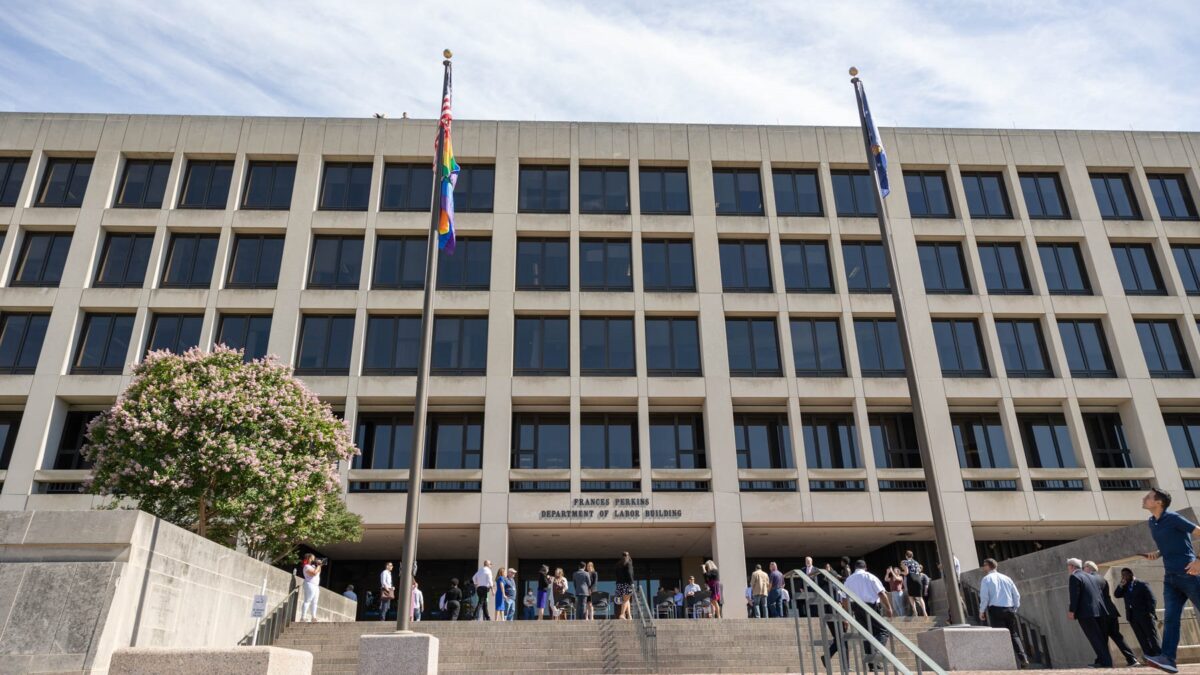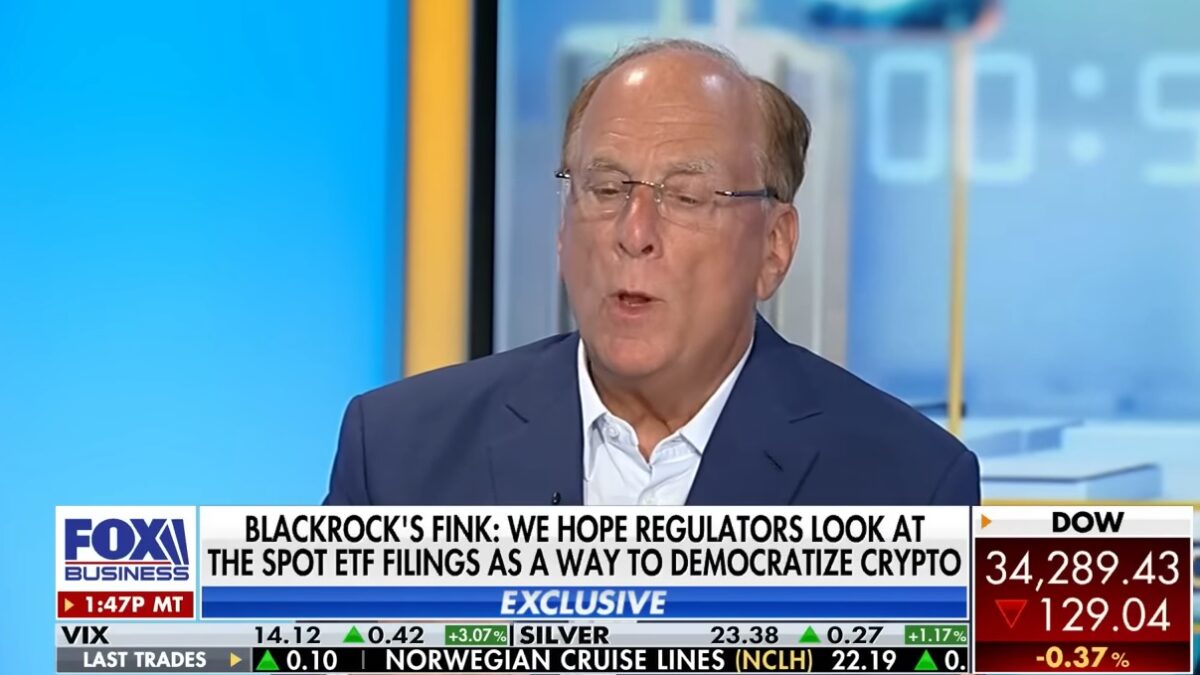President Joe Biden issued his first veto against a bipartisan bill that sought to protect millions of Americans’ retirement plans from woke investments. His action shows he prioritizes politics over Americans’ financial security.
Early this month, the U.S. House and Senate passed a bipartisan resolution to prevent fiduciaries of retirement plans from subordinating financial returns to woke causes. Biden chose to ignore all the concerns and warnings, including those from his own party. Instead, he used his first veto to preserve a so-called environmental, social, and governance, or ESG, rule that his administration adopted last year. His action confirms that despite his rhetoric of bipartisanship, he is an inflexible politician.
The Labor Department issued a new ESG rule last November, which “allows plan fiduciaries to consider climate change and other environmental, social, and governance factors when they select retirement investments and exercise shareholder rights, such as proxy voting.”
The ESG rule also reversed the Trump administration’s restriction on retirement plan investments in ESG companies or funds due to fear of subordinating “the interests of plans and their participants and beneficiaries to unrelated objectives.”
Supporters of ESG have claimed that ESG-focused investment funds have generated better returns than traditional funds. Yet growing evidence shows that ESG investments have not lived up to their hype.
For instance, a University of Chicago study found no evidence that high-sustainability (another name for ESG) funds outperform low-sustainability funds. Additionally, when the stock market was in turmoil last year, ESG funds did not fare better than traditional funds, thus offering investors no haven. In fact, according to Bloomberg, the 10 largest ESG funds posted double-digit losses in 2022, and eight of them lost more than the S&P 500, a stock-market index.
ESG funds charge higher fees than non-ESG funds, despite failing to generate better returns. In 2020, the average annual fee of ESG U.S. stock exchange-traded funds (ETF) was 0.2 percent, about 0.06 percentage points more than conventional funds, which averaged about 0.14 percent. It might seem insignificant, but every percentage point makes a big difference for asset managers who oversee billions of dollars.
“A firm managing $1 billion in a typical ESG fund, for example, would garner $2 million in annual fees versus managing the standard ETF’s $1.4 million,” according to The Wall Street Journal. Asset managers find ESG funds more lucrative than non-ESG funds due to higher fee income. No wonder BlackRock, the world’s largest asset manager, and its CEO, Larry Fink, have advocated so loudly for ESG investments.
But a good deal for BlackRock is not a good deal for investors. By investing in ESGs, investors have been paying more for mediocre returns.
If investors thought they could live with higher fees and lower returns because ESG investments are improving the world, here is the bad news. According to University of Colorado professor Sanjai Bhagat, multiple studies have shown that many companies in the ESG portfolios “had worse compliance records for both labor and environmental rules” than non-ESG companies and that “companies added to ESG portfolios did not subsequently improve compliance with labor or environmental regulations.”
Professor Bhagat also found evidence that some companies used public endorsement of ESG as fig leaves to cover up their poor performances. He concluded that “funds investing in companies that publicly embrace ESG sacrifice financial returns without gaining much, if anything, in terms of actually furthering ESG interests.” The assertion that investing in ESG funds allows investors to do well by doing good is simply false.
The 1974 Employee Retirement Income Security Act (ERISA), which today covers retirement plans worth $12 trillion on behalf of 150 million Americans, requires asset managers to act as fiduciaries, meaning they must put retirees’ interests ahead of their own, focus on maximizing long-term returns, and only consider factors that have a “material effect” on investment risk or return in retirement plans. Given what we know about ESG funds, they are not good investment vehicles for Americans’ retirement plans.
Yet the Biden administration issued its new ESG rule last November, which gives fiduciaries the green light to consider ESG factors in retirement plans and protects fiduciaries from lawsuits “if their investment choices cause lower returns or losses because the funds indulge in climate-change or social-justice causes,” according to The Wall Street Journal.
The Biden administration forced a new ESG rule down Americans’ throats as a backlash against ESG investments grows.
Last December, Vanguard, one of the world’s largest asset managers, announced its withdrawal from the Net Zero Asset Managers Initiative, which promotes ESG. Eight states passed legislation restricting ESG factors in state investment funds in recent legislative sessions, and 23 states are now working on similar bills.
There are also two lawsuits filed by participants in ERISA-regulated retirement plans, alleging that the Biden administration’s ESG rule violates ERISA and that the secretary of labor has exceeded statutory authority in adopting the rule.
The recent collapse of the Silicon Valley Bank (SVB) should serve as a warning that bad things can happen when woke causes distract management. The head of SVB’s risk management reportedly “spearheaded multiple ‘woke’ LGBTQ+ programs, including a ‘safe space’ for coming-out stories, as the firm raced toward collapse.”
Biden likes to talk about caring for American workers, but the veto reveals he will “prioritize politics over getting the best returns for millions of Americans’ retirement investments,” according to Sen. Joe Manchin, D-W.Va.
American voters should remember Biden’s indifference to their retirement plans when he asks for their votes in his 2024 re-election campaign.









